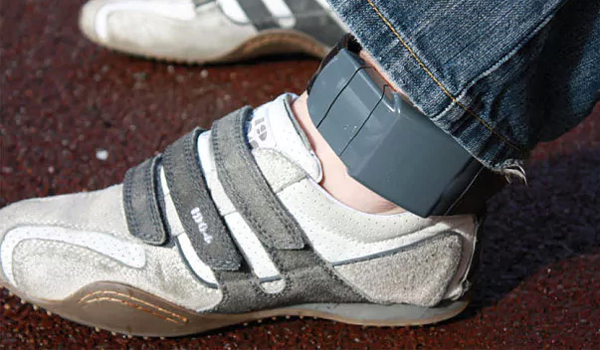New GPS tagging scheme for stalking offenders launches in London
A new pilot project in London will see more stalking offenders fitted with GPS tags on release from prison to help protect victims and prevent reoffending.
The scheme will tag individuals who have served custodial sentences for stalking offences with a tracking device under strict licence conditions. More than 200 offenders across varying sentence types are set to be tagged by March 2026.
The pilot will also include stalkers who receive community sentences, by working in partnership with the Ministry of Justice’s GPS programme, meaning that for the first time all types of stalking behaviour will be eligible for GPS monitoring. This will ensure that stalking behaviour, including when the victims are strangers or acquaintances, can be better managed.
It has been developed following close consultation with victims and survivor groups across the capital.
The launch coincides with 16 Days of Activism Against Gender-Based Violence and forms part of Mayor of London, Sadiq Khan’s £233 million investment to tackle violence against women and girls
The mayor is also investing an initial £50,000 to help ensure the management of stalking cases on the new pilot and greater information sharing with partners, including the Metropolitan Police Service (MPS), London Probation, the NHS and the Suzy Lamplugh Trust.
The announcement builds on measures announced by the Government last week to safeguard victims and is the latest part of Mr Khan’s £5.7 million funding of state-of-the-art GPS tracking technology to ensure the focus on behaviour change is on offenders, not their victims.
The latest data from the mayor’s knife crime tagging programme shows 67 per cent of tag wearers successfully completed their period of monitoring up to a maximum period of six months. A third (33 per cent) had been recalled to prison – with GPS tracking data playing a significant role in the detection of non-compliance and new offences in recalled cases.
The mayor’s GPS Domestic Abuse Tagging Pilot has also tagged 707 high-risk individuals released from prison since 2019 and analysis from the Mayor’s Office for Policing and Crime (MOPAC) found improved risk management, improved protection for victims and more effective enforcement of licence conditions when these are broken. Following the success of this pilot, MOPAC has worked with the Ministry of Justice to support their new national electronic tagging programme.
Mr Khan, said: “Stalking is an horrendous crime that can have a long-lasting impact on victims, who we know are more likely to be young women. I’m pleased to launch my new GPS stalking pilot today which will play a key role in preventing reoffending and safeguarding victims.
“The £5.7 million GPS tagging programme has been working to ensure perpetrators of violence change their behaviour, not victims and survivors. The results we’ve seen so far show that GPS tagging is effectively dissuading individuals from reoffending, but also quickly detecting those offenders who breach their licence conditions and could pose a risk to their victims.
“I will continue to do everything within my power to ensure that ending violence against women and girls is treated with the utmost urgency – both by our police and society as a whole as we continue to build a safer London for everyone.”
MPS Commander Kevin Southworth said: “We are having real success in tackling stalking in London by taking a data-led approach and working closely with partners at the Stalking Threat Assessment Centre (STAC). There is still lots more to do but this additional tagging capability will act as a deterrent to stalkers and help us detect them when they breach their conditions so we can get them off the streets.”
London’s Independent Victims’ Commissioner Claire Waxman OBE said: “Stalking has a harrowing impact on the lives of victims as well as their friends and loved ones.
“Having called for GPS tagging to be extended to stalking offenders, I very much welcome the launch of the Mayor’s new GPS Stalking pilot. This will allow probation services and the police to effectively monitor stalkers and provide an extra layer of security to victims.
“My London Stalking Review has highlighted the scale of work needed to tackle stalking and I will continue to work closely with police, probation services and the wider criminal justice system to ensure this remains a priority. It’s incredibly important that stalking victims get the support and protection they require and today’s announcement is a significant step in the right direction.”
Minister for Prisons, Probation and Reducing Reoffending, James Timpson, said: “Tagging has a crucial part to play in keeping the public safe and this extra investment will help the Probation Service keep an even more watchful eye on stalkers in the capital.
“Making our streets safer is central to this government’s Plan for Change, and these tags will help us enforce restrictions on stalkers’ movements so those who try to reoffend face further punishment and victims can feel safer going about their lives.”
Sara Murray OBE, chief executive officer of Buddi – the provider of location monitoring technology for the GPS stalking pilot – said: “This pilot represents the latest step in Buddi’s longstanding working relationship with MOPAC to support vulnerable people and reduce reoffending of people as part of their licence on release from prison. I am very proud that we can now help even more victims to feel safe in the knowledge that their stalkers are being properly monitored and managed.
“Recent high-profile cases, including the plot against presenter Holly Willoughby and the events depicted in Netflix’s Baby Reindeer have brought to light the very real threat of non-domestic stalking cases, and Buddi looks forward to helping more people who are forced to live with this terrifying reality.”


